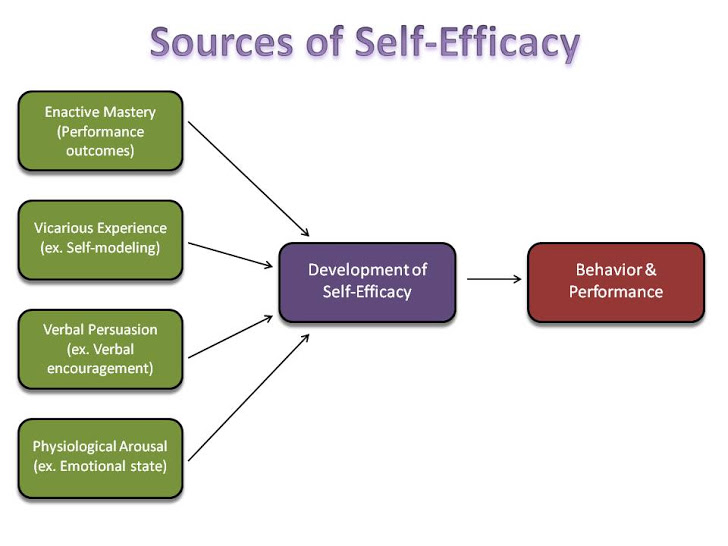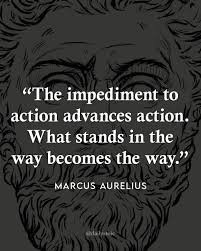In recent years, motivation has become a bit of a buzz word. A quick YouTube search of just that will return an endless scroll of montages - inspirational speeches, movie clips, snippets of podcasts, and real life examples of seemingly impossible feats of strength, bravery, and courage.
We often look to the likes of these compilations as the spark, the muse that stirs us to begin. We wait — waiting for the lightning bolt, the burst of inspiration, the emotional green light — before we move.
You sit at the foot of the bed, soaked in the pale blue light of the TV screen, as David Goggins screams into the camera, and the best of Hans Zimmer swells in the background - you picture yourself in his place.
But what if we have the sequence backward? What if action is the spark: that the act of doing is what creates motivation, rather than motivation preceding action?
The Impediment to action advances action. What stands in the way becomes the way.
- Marucs Aurelius
The illusion of waiting
How often have you stood at the foot of a metaphorical mountain (or even a literal one), and gazed towards the summit whilst thinking:
I'll get there when i'm ready - when I feel the time is right.
Whether it's leaving a job to pursue a more fullfilling one, entering the gym for the first time, making the necessary changes to your diet, or simply folding that pile of laundry in the corner of the room - we've all been there to some extent.
To use a bleak, and extreme example, but one that many of us have encountered - think to that guy who spends every evening at the local pub, frittering away each weeks pay on pints and the pokies. He's spent his whole life waiting for that feeling, waiting for the time to be right.
But the problem is: that “feeling” may never arrive. Internal states are fickle - mood and energy ebb and flow. If one rules one’s life by waiting for perfect alignment, one may wait forever.
To use a historical example - when Caesar arrived at the banks of the Rubicon, he stood on the edge of decision. Crossing the river would plunge Rome into civil war; turning back would mean political ruin and humiliation. In that moment, he faced what psychologists call the predecisional phase - the space between intention and action. When he chose to cross, he entered the volitional phase: the point of no return.
The die was cast.
In many models of behavior, this “crossing of the Rubicon” marks the crucial shift from thought to movement — from waiting to doing. And like Caesar, each of us must eventually act, however small the first step may be.

The Mechanics of Momentum
Empirical research supports the idea that action fosters motivation. In a recent experiment, Gallagher et al. (2025) found that individuals with a more “action orientation” (i.e. tendency to initiate rather than ruminate) demonstrated higher reward motivation, especially when depressive or anhedonic tendencies were low to moderate. In effect, beginning the task made sustaining it easier.
Bandura’s (1977) theory of self-efficacy also helps explain this: believing one can succeed tends to prompt effort, and successful or partially successful attempts reinforce belief, creating a virtuous cycle.

Moreover, self-determination theory (SDT) — developed by Deci and Ryan — emphasizes that human motivation is driven by the fulfillment of three core psychological needs: competence, autonomy, and relatedness (Deci & Ryan, 2000). Acting provides feedback that builds competence; you experience autonomy through a sense of agency and choice; and relatedness when others support, join, or hold you accountable. Over time, these experiences can transform external effort into internalized, self-sustaining motivation. As several reviews note, many behavior-change interventions fail precisely because they neglect to support these basic needs (Deci & Ryan, 2000).
Thus, action is more than brute force. It is the seed of internal momentum.
Starting small, and cultivating growth
Now - armed with this knowledge, how might one harness this call-to-action in daily life? Often we find that with these great surges of enthusiasm, we can rapidly bite off more than we can chew. Choosing to challenge the Ultra-marathon, rather than first conquering the local park run.
This is not the way.
Instead, the greatest changes are derived from consistent, small actions.
Some believe it is only great power that can hold evil in check, but that is not what I have found. I've found it's the small things, everyday deeds of ordinary folk that keep the darkness at bay.
- Gandalf the grey

Here are strategies to creating your momentum:
- Begin microscopically. Commit to a tiny motion - one minute, one line, one step. This lowers the activation energy.
- Form implementation intentions. If “tomorrow at 9 am I’ll write one sentence” - an “if-then” plan bridges intention to action.
- Use “just do one thing.” The first move need not be perfect or complete. Its power lies in breaking inertia.
- Design the environment. Remove friction, prime cues (writing pad on the desk, gym clothes visible, inbox cleared).
- Incorporate feedback loops. Celebrate small wins, reflect, journal progress, adjust forward.
- Lean on accountability. A partner, coach, group, or public commitment can help you act even when internal push is low.
Over time, these small acts compound. The muscle of initiation strengthens; the brain registers I did it before, so I can again.
Boundaries and balance
Even as we move forward, awareness must remain our guide. Action alone, without direction or reflection, can scatter our energy instead of sharpening it.
Of course, aimless action is not a one-size fits all panacea. When resources are scarce (time, energy, mental health), the threshold to act may be high. People with severe depression or burnout may struggle simply to take the first step; in such cases, external support or staged scaffolding is vital. Otherwise, we run the risk of spreading ourselves too thin... like butter over too much bread (I'll never apologize for shamelss Lord of the rings references).

But remember - movement without mindfulness is not mastery.
Action for action’s sake can lead us astray: misdirected effort, burnout, or simply the illusion of progress. It’s wise to pause, to take stock of where you are, and to ensure the path you’re carving still points toward something meaningful. Reflection is not hesitation - it’s recalibration.
Like a compass reset before the next step.
Sustaining motivation over time demands more than the initial surge. The feedback from your actions must mean something. It’s not enough to move - you must move with purpose. The repetitions, the late nights, the small daily choices - these matter most when they’re aligned with something larger: a value, a vision, a purpose that feels like your own.
Otherwise, we risk mistaking motion for meaning.
Begin where you are
Step forward.
Do the small, imperfect thing.
From that motion, motivation will emerge - not always immediately, but inevitably, if you persist. The spark you await doesn’t come from lightning or luck. It comes from friction - the grind of doing, again and again, until the flame takes hold.
So begin - not tomorrow, not when you feel ready.
Begin now.
To close this out, i'd like to leave you with a quote from United States Navy Admiral William H. McRaven.
Every morning in seal training, my instructors would show up in my barracks room and inspect my bed. It was a simple task, mundane at best, but every morning we were required to make our bed to perfection. It seemed ridiculous at the time, but the wisdom of this simple task has been proven to me many times over. If you made your bed every morning, you will have accomplished the first task of the day. It will give you a small sense of pride and it will encourage you to do another task and another and another. And by the end of the day, that one task completed will have turned into many tasks completed. Making your bed will also reinforce the fact that the little things in life matter. If you can't do the little things right, then you'll never be able to do the big things right. And if by chance you have a miserable day, you will come home to a bed that is made, that you made.


